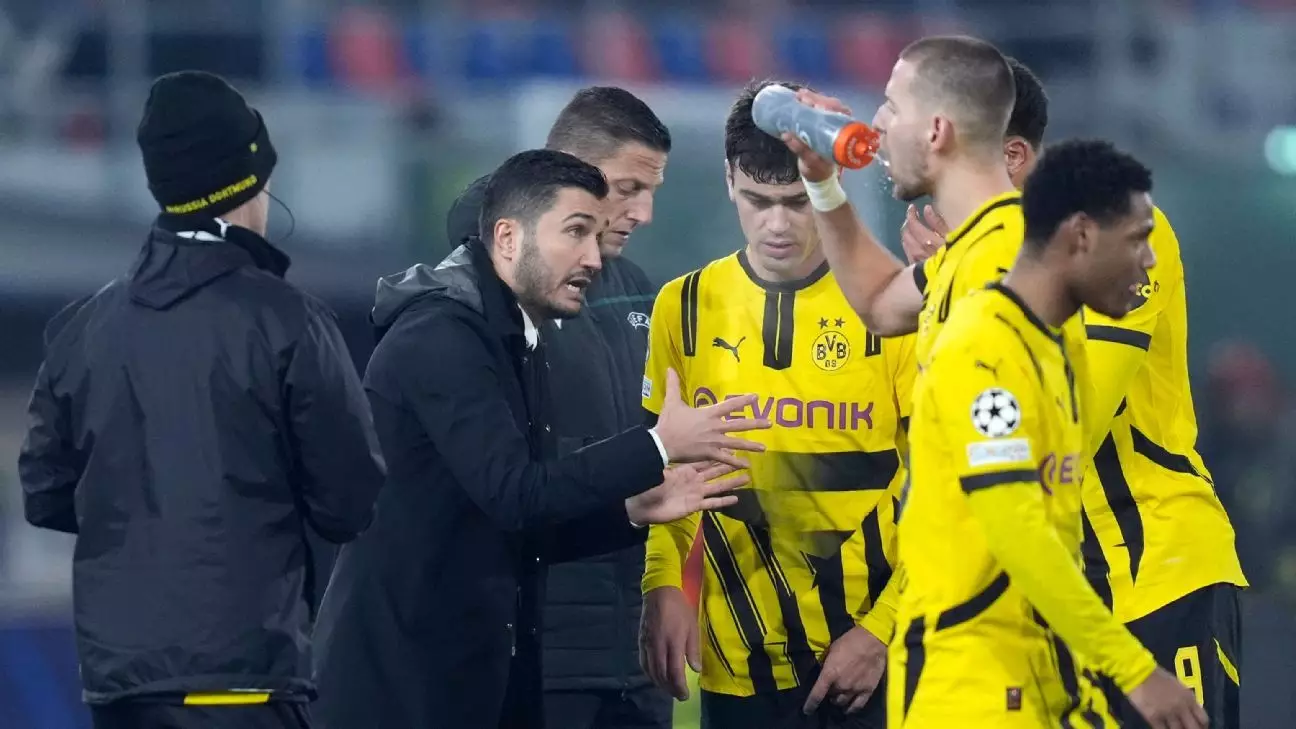The atmosphere surrounding Borussia Dortmund has become increasingly charged, following a disheartening 2-1 loss to Bologna in the Champions League. This defeat marked the team’s fourth consecutive loss across all competitions, igniting questions about the stability of Nuri Sahin’s position as head coach. Despite his past accolades and deep-rooted connections with the club, Sahin now finds himself under the looming shadow of external pressures and internal doubts. In the wake of the loss, he expressed a willingness to accept any outcome from his upcoming discussions with club management, shedding light on the precarious state of affairs at Dortmund.
Sahin’s narrative is one of a dedicated servant to Borussia Dortmund, a club he joined as a young boy. He stepped into the coaching role after a disappointing season spent as an assistant, and expectations were high due to his intimate understanding of the club’s culture and values. However, the toll of recent outcomes has led to worries about his ability to steer the team back to success. “If I am the problem, if a coach change would solve all problems, so be it,” Sahin remarked, indicating a profound humility and recognition of the pressures inherent in elite football. This introspection underscores a crucial aspect of football management; often, it is not just about tactical decisions but about managing the psychological landscape of players and stakeholders alike.
Sahin’s admission of trust from the squad contrasts sharply with the club’s disappointing results. Up until the Bologna match, Dortmund had faltered in the Bundesliga, recording no victories in their first three fixtures of 2025. The contrasting performance against Bologna highlighted systemic issues within the team. They initially took control of the game, demonstrating promise, but faltered spectacularly, conceding two goals in quick succession, a sign of deeper vulnerabilities. “The plan was definitely not to play passively,” Sahin defended his tactical approach, indicating that these lapses were not merely the result of poor strategy but perhaps of a larger mental block affecting the players.
Following the disheartening match, managing director Lars Ricken was quick to call for decisive action, emphasizing the need for tangible results. “We need wins,” Ricken stressed, showcasing the urgent nature of the dike bursting at the club, which has now only managed one victory in their last nine outings. This stark reality raises serious questions about whether the club retains confidence in Sahin’s ability to right the ship. His relationship with Ricken might be supportive, but it’s clear that the looming implications of their current form could set the stage for critical decisions.
As Sahin prepares for discussions with the club’s hierarchy, the focus will undoubtedly be on immediate strategies to halt the team’s slide further down the league table. With a crucial match on the horizon, the pressure mounts. Sahin’s fate hinges not only on the results of the impending meetings but also on his capability to galvanize a squad that, despite showing moments of promise, has been riddled with inconsistency. The ongoing narrative at Borussia Dortmund serves as a reminder that football is not only about tactics and formations but equally about psychological resilience and the unwavering trust needed to navigate turbulent waters.
The situation surrounding Nuri Sahin at Borussia Dortmund encapsulates the volatility of modern football. A coach’s legacy can turn precarious in a matter of games, and the relationship between management and staff becomes critical. Whether Sahin can translate trust into performance remains to be seen, but one thing is clear: the clock is ticking, and the need for a turnaround is urgent.

